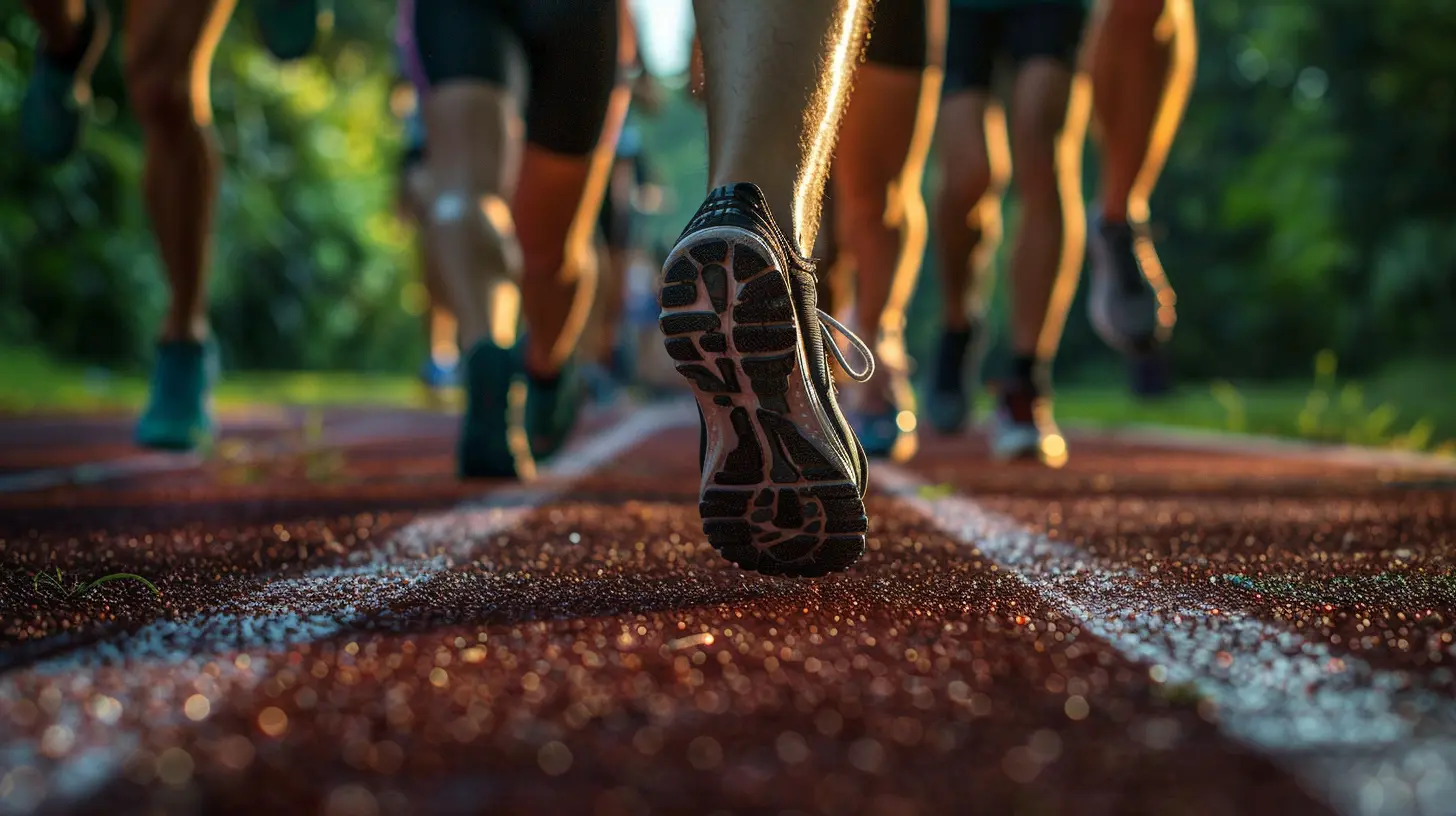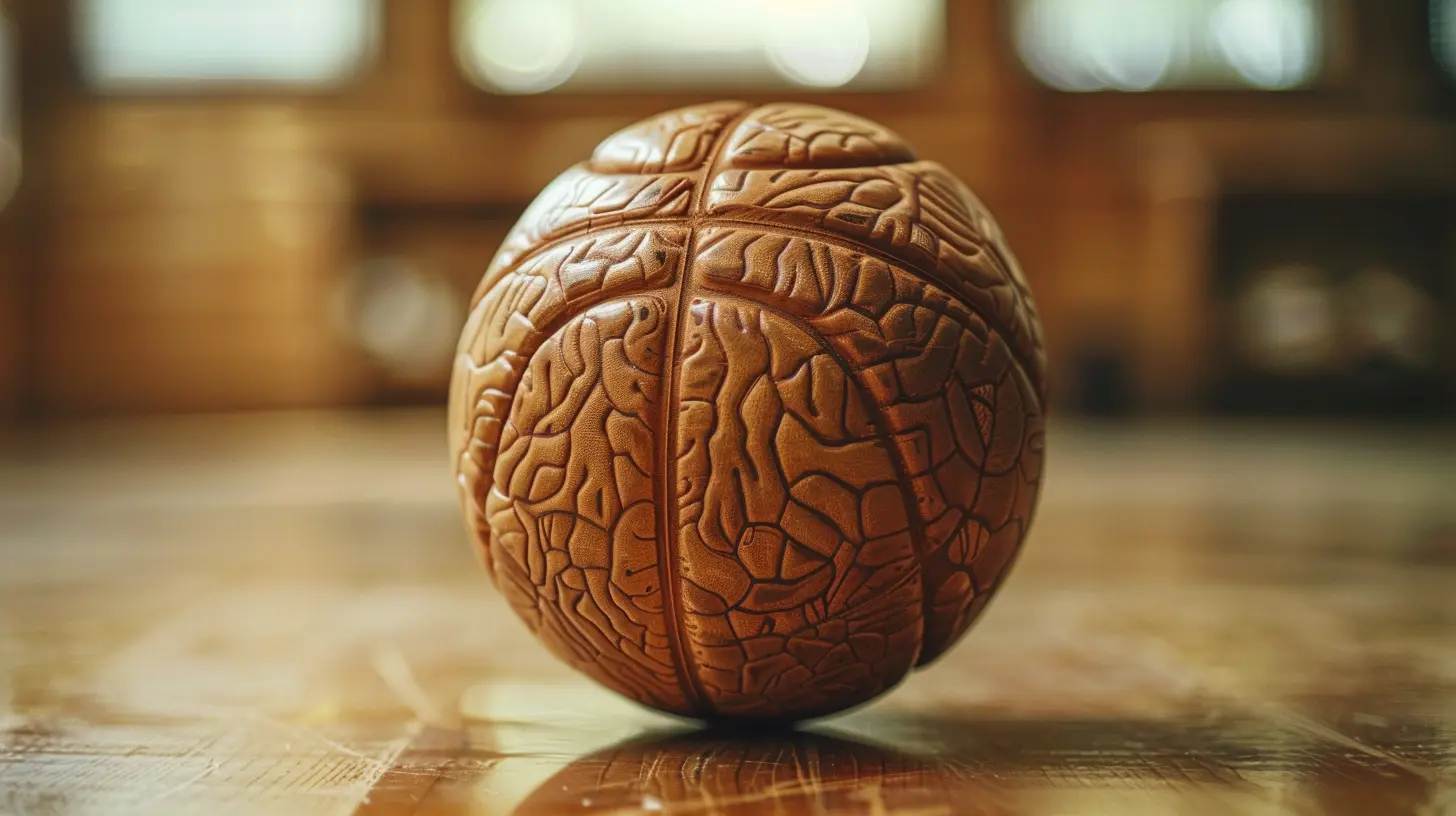Mindfulness for Athletes: Enhancing Performance and Focus
28 December 2024
In the high-pressure world of sports, athletes are always looking for that extra edge to boost their performance. Whether it's pushing physical limits, honing skills, or getting into the right mental state, athletes know that success often hinges on more than just physical prowess. Enter mindfulness—a powerful mental tool that has gained traction not only in the world of wellness but also in the sports realm.
But what exactly is mindfulness, and how can it help athletes sharpen their focus, manage stress, and ultimately enhance their performance? Let’s dive into how mindfulness can be your secret weapon on the field, court, track, or wherever your game takes place.
What Is Mindfulness?
Before we dive into the benefits for athletes specifically, let’s break down what mindfulness actually is. At its core, mindfulness is the practice of paying attention to the present moment, intentionally and without judgment. It's about being fully aware of your thoughts, emotions, and surroundings, and not getting caught up in distractions or stress.Mindfulness has its roots in ancient meditation practices, but today, it’s become mainstream in various contexts—therapy, education, corporate environments, and yes, even sports. The goal is to stay grounded, focused, and present, which is especially useful in high-stakes situations where mental clarity can make all the difference.
For athletes, mindfulness means being able to focus on the here and now, whether you're in the heat of competition or training for the next big event. It allows you to block out distractions (like that nagging voice in your head or the pressure of a crowd) and focus on what truly matters: your performance.
The Science Behind Mindfulness and Athletic Performance
You might be thinking, “How does something like mindfulness actually translate into better performance on the field?” Well, science has some pretty convincing answers.1. Improved Focus and Concentration
Mindfulness is basically a workout for your brain. When you practice mindfulness regularly, you train your mind to stay focused on the present moment. This can be invaluable for athletes who need to concentrate on their tasks despite distractions—be it the crowd, their competitors, or even their own nerves.For example, think about a basketball player shooting free throws. Mindfulness can help them tune out the noise of the crowd and the pressure of the moment, allowing them to focus solely on their form and the basket.
2. Enhanced Mental Resilience
Athletes face intense pressure, whether it’s from competition, expectations, or even self-doubt. Mindfulness helps athletes develop mental resilience by teaching them how to stay calm under pressure and how to handle negative emotions without letting them spiral out of control.When you’re mindful, you’re less likely to get caught up in the “what ifs” or the mistakes you’ve made. Instead, you focus on what you can control in the moment, which can help reduce anxiety and improve performance.
3. Faster Recovery and Reduced Injury Risk
Sports aren’t just physically demanding—they take a mental toll too. Mindfulness has been shown to help athletes recover more quickly, both physically and mentally. By being mindful, athletes can better tune into their bodies and avoid pushing themselves too hard, which can reduce the likelihood of injury.Additionally, mindfulness can help athletes manage pain and discomfort by shifting their focus away from the pain and onto their breath or another aspect of their experience.
4. Increased Self-Awareness
Mindfulness teaches athletes to become more aware of their mental and physical states. This heightened self-awareness can be a game changer in terms of performance. By being in tune with their bodies, athletes can detect early signs of fatigue, stress, or tension and take steps to address them before they impact performance.
How to Practice Mindfulness as an Athlete
Now that we've covered the “what” and “why,” let’s talk about the “how.” Incorporating mindfulness into your training doesn't have to be complicated or time-consuming. In fact, you can start with just a few minutes a day and gradually build up from there. Here are some practical ways athletes can practice mindfulness:1. Mindful Breathing
One of the easiest ways to introduce mindfulness into your routine is through mindful breathing. You can do this anywhere—before a game, during a timeout, or even in the locker room. Simply focus on your breath as it moves in and out of your body, and if your mind starts to wander (which it will), gently bring your focus back to the breath.Mindful breathing helps ground you in the present moment, which is invaluable during high-pressure situations. The great thing is, your breath is always with you, so you can use it as an anchor whenever you need to refocus.
2. Body Scan Meditation
Another effective mindfulness technique for athletes is the body scan meditation. In this practice, you bring your awareness to different parts of your body, starting from your toes and working your way up to your head. As you focus on each area, notice any tension, pain, or discomfort, and consciously relax those muscles.This can help athletes become more in tune with their bodies, which is crucial for avoiding injury and optimizing performance. Plus, it’s a great way to unwind after a tough training session or competition.
3. Mindful Movement
What better way to practice mindfulness as an athlete than through movement? Whether you’re running, swimming, or lifting weights, try to bring your full attention to the sensations of your body as you move. Notice how your muscles feel, how your breath changes, and how your body reacts to each movement.This not only helps improve focus but can also make your workouts more enjoyable and less monotonous. Think of it like turning your training into a moving meditation.
4. Visualization
Visualization is a powerful tool that many athletes already use, but when combined with mindfulness, it becomes even more effective. Before a competition or game, take a few moments to visualize yourself performing at your best—running that perfect race, making that game-winning shot, or executing that flawless move.The key is to approach visualization with a mindful mindset; rather than getting caught up in the outcome, focus on the process. Visualize yourself staying calm, focused, and in control, no matter what challenges arise.
Real-Life Examples of Mindfulness in Sports
You might be surprised to know that some of the world’s top athletes are not only aware of mindfulness but actively incorporate it into their training and performance routines. Here are a few examples of mindfulness in action:1. LeBron James (Basketball)
LeBron James, one of the greatest basketball players of all time, is a known advocate of mindfulness and meditation. He has credited these practices with helping him stay calm and focused, especially during high-pressure moments in the NBA playoffs. By staying present and not letting distractions get to him, LeBron has been able to maintain a high level of performance throughout his career.2. Novak Djokovic (Tennis)
Tennis player Novak Djokovic is another athlete who swears by mindfulness. Djokovic has spoken about how mindfulness and meditation have helped him cope with the immense pressure of being a top-ranked player. By staying present and focused, he's been able to bounce back from tough losses and maintain his competitive edge.3. Phil Jackson and the Chicago Bulls/LA Lakers (Basketball)
Phil Jackson, the legendary coach of the Chicago Bulls and Los Angeles Lakers, famously introduced mindfulness and meditation to his teams. Jackson believed that mindfulness could help his players stay calm under pressure, improve focus, and foster team cohesion. Under his guidance, both the Bulls and Lakers went on to win multiple championships.The Mind-Body Connection: Why It Matters for Athletes
At the end of the day, mindfulness is about connecting the mind and body in a way that enhances performance. For athletes, this connection is crucial. Your mind and body need to be in sync for you to perform at your best. When your mind is distracted, anxious, or stressed, your body follows suit—your muscles tense up, your coordination suffers, and your performance takes a hit.Mindfulness helps athletes keep their minds clear and focused, which in turn allows their bodies to perform at peak levels. It’s not just about staying calm—it's about optimizing the entire athlete experience, from training to competition to recovery.
Final Thoughts: Make Mindfulness Your Secret Weapon
Mindfulness is more than just a trendy buzzword; it’s a powerful tool that can help athletes improve focus, reduce stress, and enhance performance. The best part? It’s accessible to everyone, regardless of your sport, skill level, or experience. Whether you're a weekend warrior or a pro athlete, incorporating mindfulness into your routine can help you stay grounded, focused, and ready to take on whatever challenges come your way.So, the next time you lace up your sneakers or step onto the field, take a deep breath and remember to stay present. With mindfulness in your corner, you might just find yourself performing better than ever.
all images in this post were generated using AI tools
Category:
MindfulnessAuthor:

Janet Conrad
Discussion
rate this article
13 comments
Romina Gibson
This article underscores the vital connection between mindfulness and athletic performance, illustrating how mental clarity and focus can significantly enhance competitive outcomes.
February 5, 2025 at 3:28 PM

Janet Conrad
Thank you! I'm glad you found the connection between mindfulness and athletic performance so compelling. It truly can make a significant difference!
Zariah Griffin
This article effectively highlights mindfulness as a powerful tool for athletes, yet it overlooks potential limitations, such as individual differences in responsiveness to mindfulness practices. A more nuanced exploration of how personal backgrounds and mental states influence the effectiveness of mindfulness could enrich the discussion and provide a fuller understanding of its impact on performance.
February 1, 2025 at 4:15 AM

Janet Conrad
Thank you for your insightful comment! I appreciate your suggestion to explore individual differences and personal backgrounds in mindfulness practices, and I will consider incorporating this perspective in future discussions to provide a more comprehensive view of its impact on athletic performance.
Amelia Morrow
“Mindfulness for athletes? Finally, a way to focus on my game without thinking about what’s for dinner! If sitting still can help me run faster, sign me up. Just don’t ask me to meditate while doing burpees!”
January 29, 2025 at 4:23 PM

Janet Conrad
Glad to hear you're excited about mindfulness! It can really enhance focus and performance—no need to meditate during burpees, just small moments of awareness can do wonders. Keep up the great work!
Solenne Fisher
Mindfulness can be a game-changer for athletes. By cultivating present-moment awareness, athletes can enhance their focus, reduce anxiety, and improve overall performance. Incorporating mindfulness techniques into training routines not only sharpens mental resilience but also fosters a deeper connection with the sport, elevating both enjoyment and achievement.
January 24, 2025 at 4:06 AM

Janet Conrad
Thank you for highlighting the transformative power of mindfulness for athletes! Your insights on focus, anxiety reduction, and the deeper connection to the sport resonate perfectly with our discussion on enhancing performance.
Alyssa McQuillen
Mindfulness can significantly boost athletic performance by improving focus and reducing anxiety, allowing athletes to fully engage in their sport. Highly recommended!
January 21, 2025 at 5:47 PM

Janet Conrad
Thank you for your insightful comment! I'm glad you recognize the benefits of mindfulness in enhancing athletic performance and focus.
Dakota Fisher
Intriguing concept! How does mindfulness specifically impact an athlete's mental state and physical performance during competitions?
January 17, 2025 at 4:57 AM

Janet Conrad
Mindfulness helps athletes stay present, reducing anxiety and enhancing focus, which can lead to improved mental clarity and physical performance during competitions.
Beatrix Hurst
This article beautifully highlights the importance of mindfulness in sports. It's inspiring to see how mental techniques can enhance focus and performance, reminding us that the mind is as vital as physical training.
January 10, 2025 at 5:43 PM

Janet Conrad
Thank you! I'm glad you found the article inspiring. Mindfulness truly plays a crucial role in enhancing both focus and performance for athletes.
Audra McPhee
Great insights on mindfulness! It’s fascinating how mental training can significantly elevate athletic performance and focus.
January 2, 2025 at 5:45 AM

Janet Conrad
Thank you! I'm glad you found the insights valuable—mindfulness truly can be a game-changer for athletes!
Selene Wilkins
Mindfulness isn’t just about zen; it’s the athlete's secret weapon. Elevating focus and performance by tuning out distractions is the game-changer that transforms training into triumph. Every breath counts!
January 1, 2025 at 4:38 PM

Janet Conrad
Absolutely! Mindfulness empowers athletes by sharpening focus and minimizing distractions, ultimately transforming their training into success. Every moment and breath becomes a powerful tool for peak performance.
Dixie Mendoza
Mindfulness empowers athletes to harness their mental strength, cultivating focus and resilience. By integrating mindfulness practices, athletes can elevate performance, conquer challenges, and unlock their true potential. Embrace the journey!
December 30, 2024 at 3:28 PM

Janet Conrad
Thank you for highlighting the transformative impact of mindfulness on athletic performance! Embracing these practices truly empowers athletes to reach new heights.
Kylie Perry
Mindfulness empowers athletes—focus, perform, and thrive!
December 29, 2024 at 3:39 AM

Janet Conrad
Thank you! Mindfulness truly is a game-changer for athletes, helping them harness focus and boost their performance.
Owen Rocha
Mindfulness can significantly boost athletes' focus and performance, fostering mental resilience and clarity.
December 28, 2024 at 3:56 PM

Janet Conrad
Thank you for your insight! Indeed, mindfulness serves as a powerful tool for athletes, enhancing not just focus and performance but also overall mental resilience.
Josie McKeever
In the silent moments before a race, where thoughts linger like shadows, a subtle shift in awareness can unravel hidden potential. Mindfulness isn’t just a practice; it’s a key that unlocks the mind's vault, revealing depths of focus and resilience yet to be discovered.
December 28, 2024 at 4:44 AM

Janet Conrad
Thank you for your insightful comment! You're absolutely right; those quiet moments can truly enhance an athlete's mental clarity and unlock their full potential.
MORE POSTS

Navigating Family Conflicts: Psychology Tips for Peaceful Resolutions

Personality Types and Leadership Styles: What They Reveal About You

Mental Toughness at Work: How to Stay Resilient in a High-Pressure Job

How Cognitive Science Informs Artificial Intelligence

Mindful Leadership: Leading with Clarity and Compassion

Exploring the Use of Metaphors in Therapy

Navigating Conflict During Life Transitions

Recognizing and Addressing Codependency in Relationships

How PTSD Erodes Self-Esteem and Ways to Rebuild It